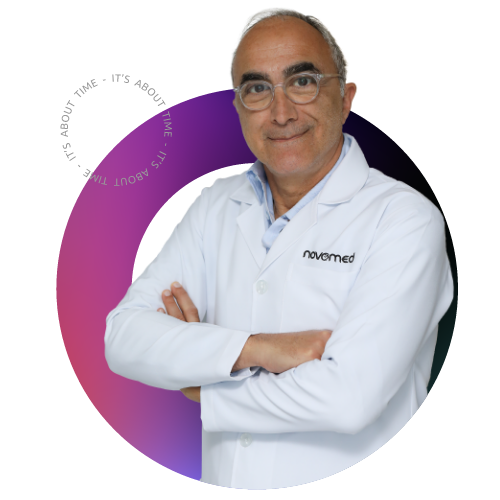What is Celiac Disease?
Celiac disease is an immune reaction to eating gluten, a protein found in wheat, barley, and rye.
If you have celiac disease, eating gluten stimulates an immune response in the small intestine. This response damages the lining of the small intestine over time and prevents it from absorbing certain nutrients (malabsorption). Intestinal damage often leads to diarrhea, fatigue, weight loss, bloating, and anemia, and it can also lead to serious complications.
Although there is no cure for celiac disease, most people can manage with a strict gluten-free diet that can help treat symptoms and promote intestinal healing.
What are the symptoms of celiac disease?
- Diarrhea
- Nausea and vomiting
- Constipation
- Stomach ache
- Bloating and gas
- Exhaustion
- Weight loss
Moreover, the inability to absorb nutrients may lead to:
- Failure to thrive in infants
- Damage to tooth enamel
- Weight loss
- Anemia
- Irritability
- Short stature
- Delayed puberty
Neurological symptoms, which include attention deficit hyperactivity disorder (ADHD), learning difficulties, headaches, decreased muscle coordination and convulsions
What are the causes of celiac disease?
There are two genes associated with celiac disease. They are called human leukocyte antigen (HLA) DQ2 and DQ8. People who have celiac disease usually have at least one of these genes. In rare cases, a person will not have these genes but might develop celiac disease regardless.
Your genes, when combined with foods containing gluten and other factors, can contribute to your development of celiac disease, but the exact cause remains unknown. Breastfeeding practices, gastrointestinal infections, and gut bacteria may also contribute celiac disease. It should be noted that celiac disease can sometimes trigger after surgery, pregnancy, childbirth, a viral infection, or severe emotional stress.
When the body’s immune system overreacts to the gluten in the food, it destroys the tiny capillaries (intestinal villi) that line the small intestine. Villi absorb vitamins, minerals, and other nutrients from the food that you eat. If the villi are damaged, no matter how much you eat, your body will not get the desired benefit from these nutrients and minerals.
What are the risk factors of celiac disease?
Celiac disease is more common in people with:
- Type 1 diabetes
- Down syndrome or Turner syndrome
- Autoimmune thyroid disease
- Microscopic colitis (lymphocytic or collagenous colitis)
- Addison’s disease
What are the complications of celiac disease?
- Malnutrition. This happens if your small intestine is not able to absorb enough nutrients. Poor nutrition can lead to anemia and weight loss. Malnutrition can cause slow growth and short stature in children.
- Osteoporosis. Malabsorption of calcium and vitamin D can lead to weak bones (rickets or rickets) in children and loss of bone density (osteoporosis or thinning of the bones) in adults.
- Impaired fertility and miscarriage. Poor absorption of calcium and vitamin D can contribute to reproductive problems.
- Lactose intolerance. Damage to the small intestine may cause unusual pain and diarrhea after eating or drinking lactose dairy products. Once your intestines heal, you may be able to tolerate dairy products again.
- Cancer. People with celiac disease who do not commit to a gluten-free diet have a higher risk of developing many forms of cancer, including intestinal lymphoma and small bowel cancer.
- Nervous system problems. Some people with celiac disease may develop problems such as seizures or disease of the nerves in the hands and feet (peripheral neuropathy).
How is celiac disease diagnosed?
Many people with celiac disease do not realize that they have it. There are two blood tests that can help diagnose it:
- Serological tests look for antibodies in your blood. Elevated levels of specific antibody proteins indicate an immune reaction to gluten.
Human leukocyte antigen genetic testing (HLA-DQ2 and HLA-DQ8) can be used to rule out celiac disease.
If the results of these tests indicate that the symptoms are caused by celiac disease, your doctor will likely order one of the following tests: - Endoscopy. This test uses a long tube with a small camera that is placed in your mouth and passed down your throat (upper endoscopy). The camera enables your doctor to see the small intestine and take a small sample of tissue (biopsy) for analysis to see the extent of the villi damage.
- Capsule endoscopy. This test uses a small wireless camera to take pictures of your entire small intestine. The camera is placed inside a capsule the size of a vitamin capsule. As the capsule travels through your digestive tract, the camera takes thousands of pictures that are sent to a recording device.
How is celiac disease treated?
Following a strict gluten-free diet for life is the only way to treat celiac disease.
Our dietitians who have extensive experience working with people with celiac disease can help you create a healthy gluten-free diet. Even trace amounts of gluten in your diet can be harmful, even if they do not cause signs or symptoms.
Removing gluten from your diet will gradually reduce inflammation in the small intestine. This makes you feel better and eventually recover.


























